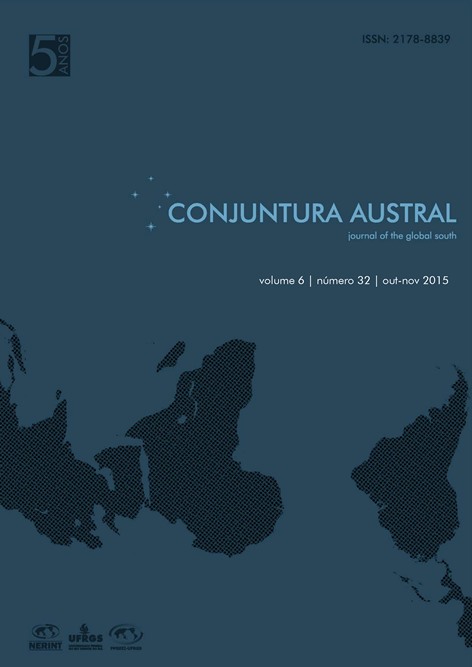Foreign policy and National Security in Contemporary Brazil
DOI:
https://doi.org/10.22456/2178-8839.59103Keywords:
Brazilian Foreign Policy, National Security, InstitutionalismAbstract
This paper discusses the institutional and cultural challenges that that hinder the development of a national security policy convergent with the foreign policy in Brazil. The research question is: how institutions and political culture in Brazil impede or hamper coordination between foreign policy and defense policy - and therefore national security? In the institutional dimension, we consider the hypothesis that the main challenges are: i) the current stage of democratic institutions in Brazil and ii) the institutional gap between the Ministry of Foreign Affairs (MFA) and the Ministry of Defence (MD). In turn, in the cultural sphere the main challenge stems from the strong shared perception by both the government and the population that Brazil has no external enemies, which results in a certain neglect of the design and implementation of a sound policy of national security. The methodology used is the process-tracing of the historical development of MFA and MD, as well as documentary analysis and quantitative data on perception of the population provided by the World Value Survey 2014.
Downloads
Downloads
Published
How to Cite
Issue
Section
License
Authors who publish with this journal agree to the following terms:
a. Authors retain the copyright and grant the journal the right to first publication, with the work simultaneously licensed under the Creative Commons Attribution-Non Commercial-ShareAlike 4.0 International License, which allows its use, distribution and reproduction in any medium, as well as its transformation and creations from it, as long as the original author and source are credited. Also, the material cannot be used for commercial purposes, and if it is transformed, or used as a basis for other creations, these must be distributed under the same license as the original.
b. Authors are able to enter into separate, additional contractual arrangements for the non-exclusive distribution of the journal's published version of the work (e.g., post it to an institutional repository or publish it in a book), with an acknowledgment of its initial publication in this journal.
c. Authors are allowed to deposit, in the repositories accepted by Conjuntura Austral, the preprint version of the manuscripts submitted to the journal prior to and during the submission process, as it can lead to productive exchanges, as well as earlier and greater citation of published work (See The Effect of Open Access)
d. Authors are permitted and encouraged to publish and distribute online (in institutional and /or thematic repositories, on their personal pages, etc.) the postprint version of the manuscripts (accepted and published), without an embargo period.
e. Conjuntura Austral: Journal of the Global South, imbued with the spirit of ensuring the protection of regional academic and scientific production in Open Access, is a signatory to the Mexico Declaration on the use of the Creative Commons BY-NC-SA license to guarantee the protection of academic and scientific production in open access.
Accepted 2015-11-22
Published 2015-11-27








